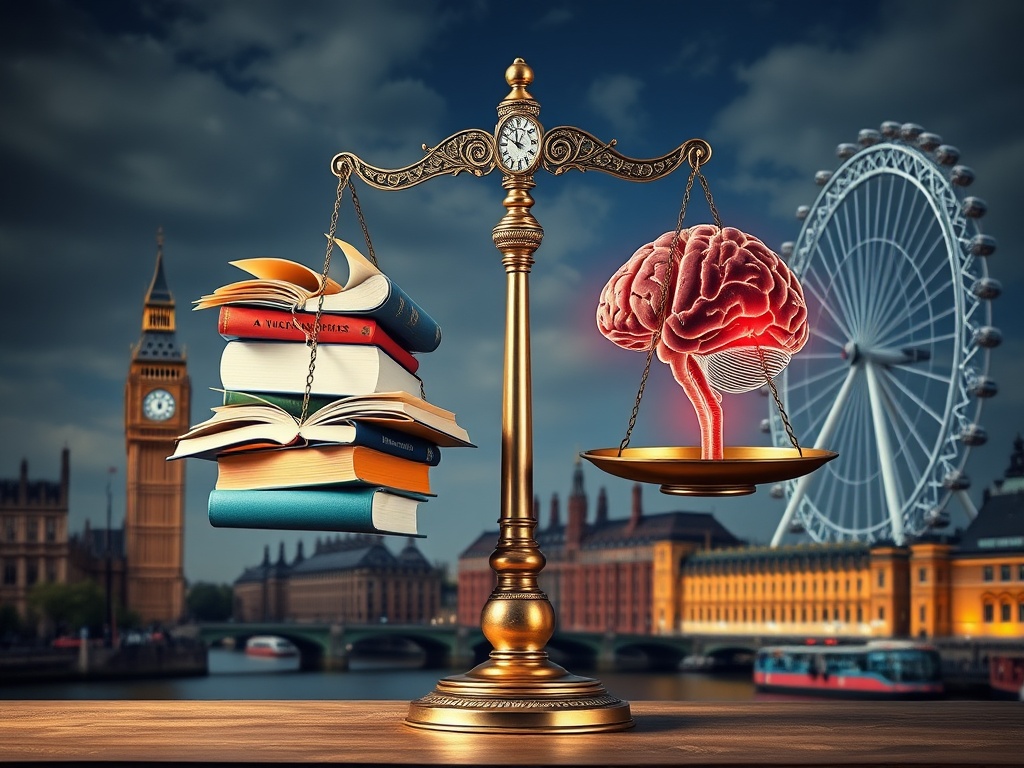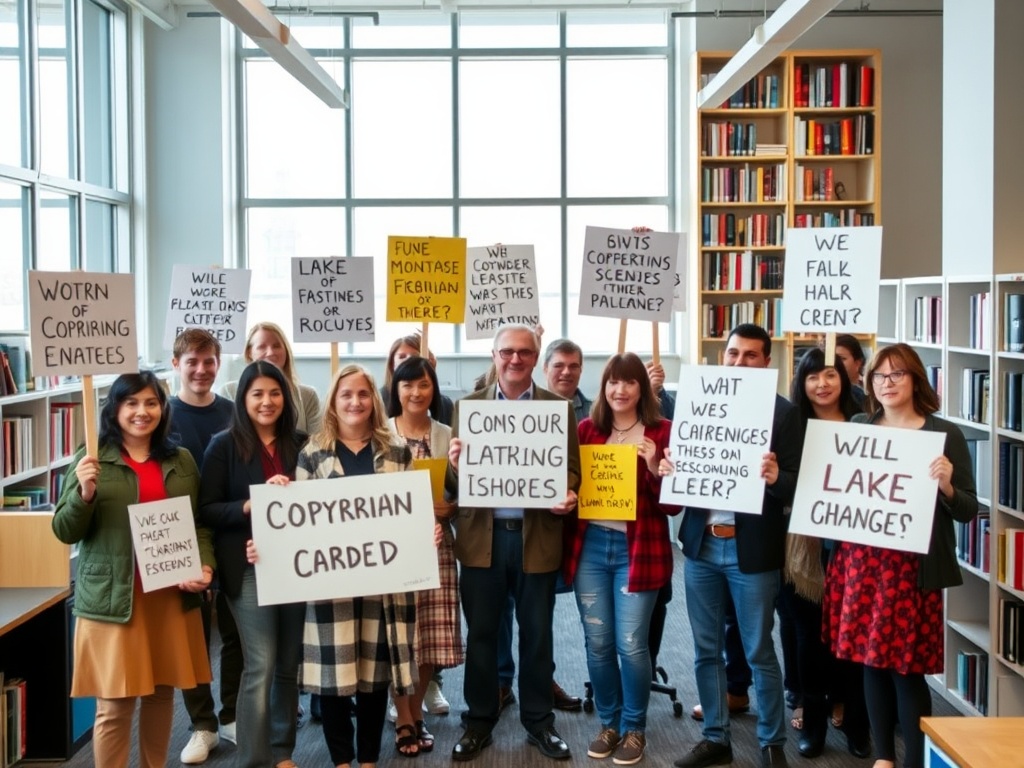UK Publishers Unite Against Government’s Proposed Copyright Changes
Today, every major news publisher in the UK has come together to urge the Government to abandon its controversial plan that seeks to dilute copyright laws. This proposal would permit tech giants to scrape content without fair compensation, undermining the livelihood of countless creators. A coalition of media and entertainment companies, collectively contributing £126 billion to the UK economy annually, has issued a stark warning that Labour’s ambition to position Britain as a leading hub for artificial intelligence (AI) could be jeopardized if the Government allows tech firms to exploit vast repositories of news articles, books, video footage, and photographs without proper licensing.
In a unified front, every national newspaper in the UK has printed identical front pages today, marking the final day of a government consultation on these proposals. Generative AI companies, including OpenAI—the creator of ChatGPT—rely on extensive amounts of high-quality, human-generated data to train sophisticated software models that can automate a wide range of tasks, from drafting contracts to planning holidays.
The Government insists that these changes to copyright laws will position the UK at the forefront of a generative AI revolution. However, they propose to ease restrictions on tech firms’ use of content produced by British companies without requiring payment or permission, in exchange for enhanced transparency regarding the data utilized in their software development.
The Creative Rights in AI Coalition, which includes national and local news organizations as well as members of the broader creative industries sector, warns that such a strategy could backfire. They argue it would cripple the UK economy by stripping creators of control over how their work is utilized. Furthermore, the coalition asserts that this move threatens jobs by depriving the creative industries of essential revenues generated by the AI revolution, while simultaneously undermining existing financial models.
Under the coalition’s “Make It Fair” initiative, members advocate for the enforcement of current copyright laws that explicitly prohibit text and data mining for commercial purposes without obtaining a license from the copyright holder first. Such a framework would allow creative industries to charge tech companies for the raw materials they require.
In a statement outlining their objectives, which is being disseminated across the UK’s news media both in print and online, the coalition remarked: “There is enormous potential for licensing the content produced by the UK’s creators, and our country could take the lead in this market. However, this is only feasible if creators maintain proper control over their content and receive fair compensation for its use. Without fair payment, the production of high-quality creative content will become increasingly difficult, which will also inhibit innovation in generative AI, countering the Government’s own aspirations for growth in this sector.”
Owen Meredith, the chief executive of the News Media Association, stated: “The UK already boasts gold-standard copyright laws that have fostered growth and job creation across the creative economy. These laws support some of the world’s greatest creators—artists, authors, journalists, scriptwriters, singers, and songwriters, to name a few. In a healthy democratic society, copyright is crucial for publishers’ ability to invest in reliable and quality journalism. The only necessary adjustment is to affirm that these laws also apply to AI, along with implementing transparency requirements so that creators understand when their content is being utilized. Instead, the Government’s proposal threatens to dilute these laws and essentially legalize content theft.”
Meredith further emphasized: “There will be no AI innovation without the high-quality content that fuels AI models. We appeal to the British public to support our ‘Make It Fair’ campaign and urge the Government to ensure that creatives can secure appropriate financial rewards from AI firms, thereby guaranteeing a sustainable future for both AI and the creative industries.”
In conjunction with the “Make It Fair” campaign, a music industry initiative has been launched, gaining backing from notable artists such as Sir Paul McCartney, Sir Elton John, Kate Bush, and Thom Yorke. Ed Newton-Rex, one of the campaign’s proponents, stated: “Today, a thousand UK musicians released a joint album featuring recordings of empty studios, urging the Government to rethink its approach or risk empty studios becoming a norm. The Government’s proposals would effectively hand over the life’s work of the UK’s talented creators—its musicians, writers, and artists—to AI companies for free. It is imperative that the Government changes course and ensures fairness.”
While AI developers have previously contended that using material sourced from across the internet is essential for realizing the benefits of this technology, experts caution that the UK risks jeopardizing its “world-leading” creative industries. They highlight the potential for “new and far-reaching threats” to productivity and revenue models arising from “unregulated” generative AI products.
A recent report from Cambridge University’s Minderoo Centre for Technology and Democracy, which investigates the interplay between digital technologies and societal dynamics, recommends that the Government encourage licensing agreements between AI developers and creative industries. It further advocates for these agreements to “fully acknowledge the rights of copyright holders and fairly compensate them for the use of their works.”
Several international media companies, including The New York Times and Getty Images, have already initiated lawsuits against generative AI developers for alleged copyright infringement. Conversely, some publishers have begun forging agreements with tech companies, permitting access to their content and archives in exchange for fees or equity stakes.
What is Generative AI?
The term “generative AI” refers to artificial intelligence software capable of creating new content—ranging from written responses to music and moving images—based on user prompts and inquiries. These tools, including large language models (LLMs), must be “trained” on vast amounts of human-generated data to deliver plausible and generally accurate responses.
How is the Law Set to Change?

As part of its blueprint to establish Britain as a leader in AI technology development, the Government has proposed modifying copyright laws. This amendment would allow developers to utilize any and all British-created material unless content owners explicitly “opt-out” from its use for such purposes.
Why Are Creative Industries Concerned?
The newly-formed Creative Rights in AI Coalition argues that the proposed changes will facilitate tech giants in harvesting British creative content—from newspaper archives to music catalogs—without requiring payment or permission. There is growing concern that this could choke off a vital digital revenue stream, ultimately threatening jobs within the sector.
What Do They Want to See Happen?
The “Make It Fair” campaign, launched today, is advocating for the preservation of existing copyright laws. This would allow creators to license their content to AI companies in exchange for a fee, fostering a mutually beneficial relationship between tech firms and the creative sector.
Cahal Milmo




